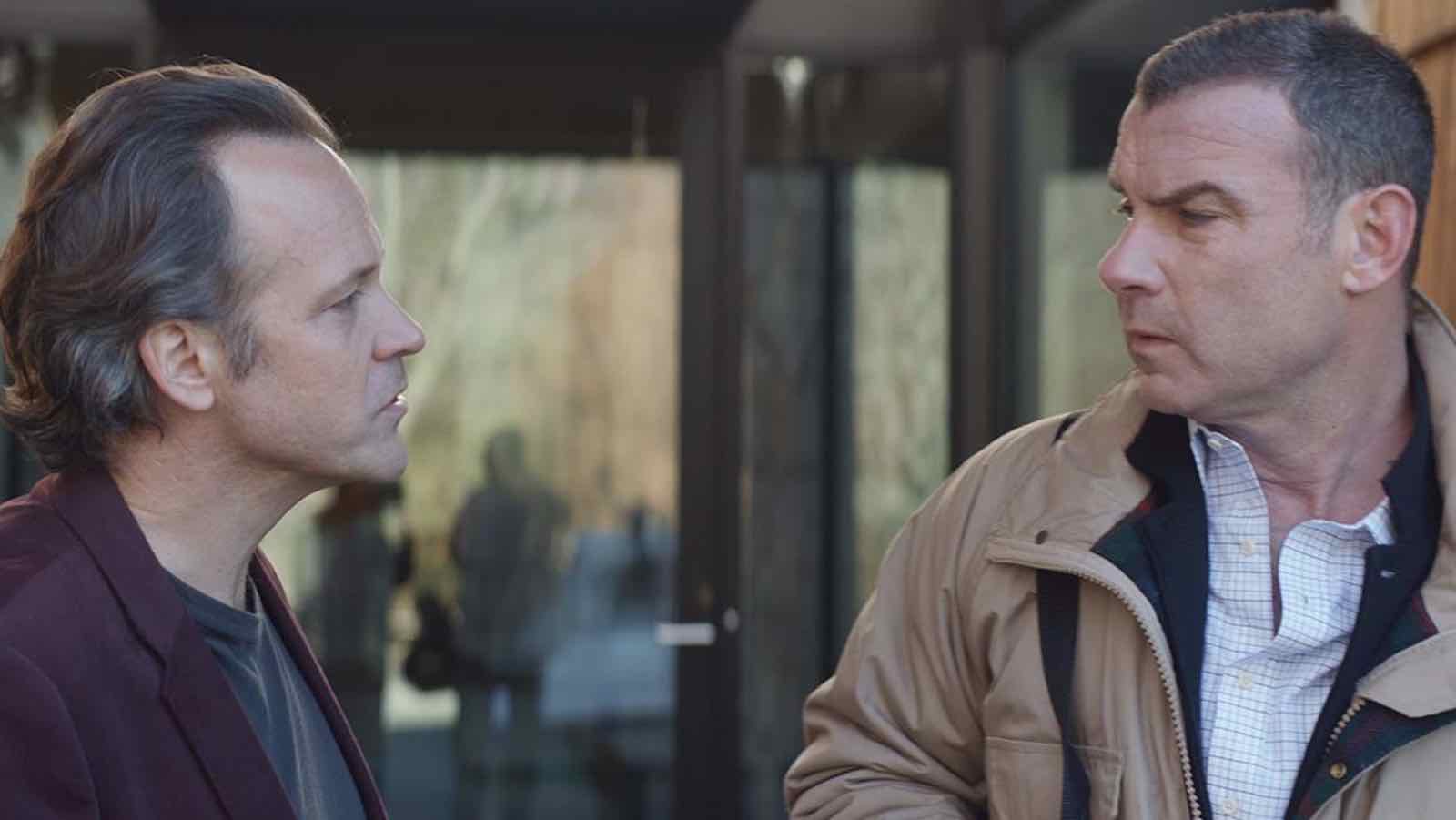
‘Human Capital’ pays dividends in drama
Human Capital. Dir: Marc Meyers. Scr: Oren Moverman. With Liev Schreiber, Peter Sarsgaard, Marisa Tomei. 97 minutes.
THREE AND A HALF STARS/B+
There is cost, and there is value. And sometimes, the characters in Human Capital discover, the two have no relation.

Based on the 2013 Italian film Il Capitale Umano, itself inspired by the Stephen Amidon novel, director Marc Meyers’ movie is full of smart prickly performers colliding in a luxurious landscape of high incomes and low morals.
Each of them has a financial deal they are trying to make. But what is the human price they are willing to pay?
The story unreels from three different perspectives. First, there is Liev Schreiber’s Drew, a well-off real-estate broker silently seething he’s not as well-off as his rich neighbors, Quint and Carrie. Desperate to get into Quint’s money-minting hedge fund, he recklessly invests money he doesn’t have.

Meanwhile, Quint, played to slippery perfection by Peter Sarsgaard, has his own problems – although one of them is definitely not worrying about his investors. Or about his wife, sharply brought to life by Marisa Tomei, currently looking longingly at starting her own non-profit, and bitterly at her own chilly life.
Each one of them wants something more, but what are they willing to give up to get it? Their house? Their marriage? Another person? There are deals to be made, and not the kind covered in the Wall Street Journal, either.
There’s a young-love subplot, too, which connects the families, as Drew’s moody daughter shares secrets with Quint and Carrie’s surly son. In the end, however, the teen angst is mostly just a distraction from the grown-up drama on display, all captured in the damp autumnal tones of Kat Westergaard’s cinematography.

But then just as the film seems set in a perpetual Autumn, so do the people seem trapped in their own, slowly darkening season. Life is short and then it’s over, and even if you’re rich enough to buy almost anything, life’s shops are closing soon. If you see something you want, better grab it.
Once again, screenwriter Oren Moverman shows the same confident feel for the 1% that he did in The Dinner, while Meyers’ direction nimbly keeps all three narrative balls in the air. Although the Rashomon gimmick is a little forced, at times, each of the three leads is superb in their parts, by turns desperate, hungry or ice-cold.

The tone is set right at the beginning at a school dinner, with the prep-school headmaster preparing to dole out a coveted academic prize. These students may already have everything, but they want more, just like their parents do. And none of them see that acquisitiveness or unexamined privilege as a problem.
“When did elite become a dirty word,” the headmaster says to appreciative chuckles. But his joking defense of the upper class gets things a little backwards. These people onscreen aren’t heartless because they’re at the top. They’re at the top because they’re heartless.



